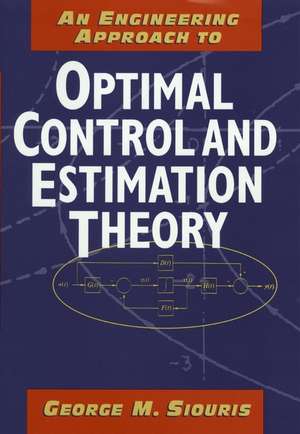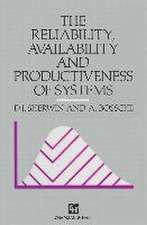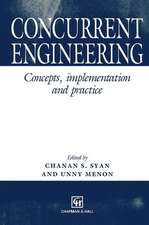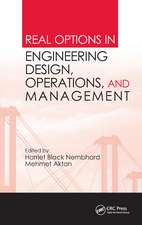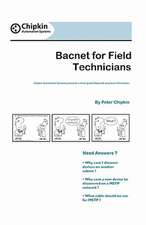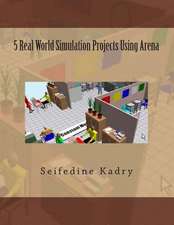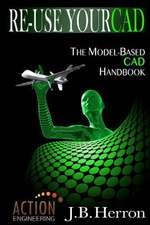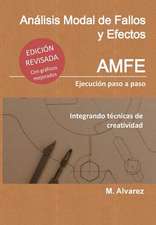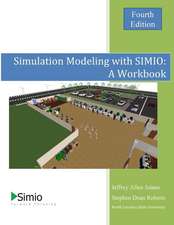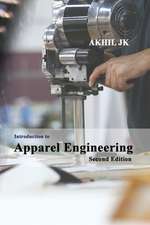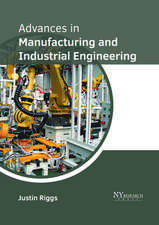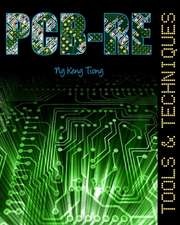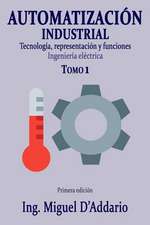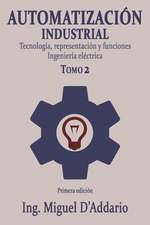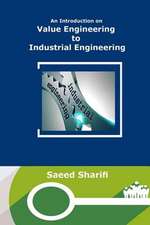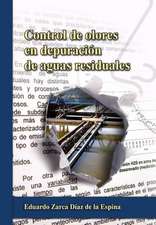An Engineering Approach to Optimal Control and Estimation Theory
Autor GM Siourisen Limba Engleză Hardback – 5 mar 1996
* All basic mathematics needed to apply subsequent information
* A historical perspective on the evolution of modern control andestimation theory
* All major concepts relevant to the design of modern controlsystems--from the Kalman filter, to linear regulators, todecentralized Kalman filters
* Practical examples useful in applying the principles underdiscussion
* Problems at the end of each chapter
* Carefully selected references from the vast number of bookspublished on this subject
* Appendixes reviewing matrix algebra that is central to moderncontrol theory, as well as matrix subroutines, useful to bothstudents and practicing engineers Optimal Control and Estimation Theory Optimal control and optimal estimation have seen tremendous growthover the past three decades, owing to major advances in aerospaceand other types of engineering. Optimal control and estimationtheory is crucial to the design of modern control systems; forinstance, navigation, mobile robotics, or automated vehicles andaircraft. It ensures that variables such as temperatures orpressure are kept in check, regardless of the disturbance thesystem undergoes. Despite the proliferation of books on the subject, most of thematerial published in this area is highly theoretical, andapproaches the subject in a "theorem-proof" fashion, which is moreappropriate to mathematics than to an engineering text. As itstitle suggests, An Engineering Approach to Optimal Control andEstimation Theory provides a practical and accessible guide, focusing on applications and implementation, and answeringreal-world questions faced by control engineers. In its highly organized overview of all areas, the book examinesthe design of modern optimal controllers requiring the selection ofa performance criterion, demonstrates optimization of linearsystems with bounded controls and limited control effort, andconsiders nonlinearities and their effect on various types ofsignals. Covering all the basics, the book deals with the evolution ofoptimal control and estimation theory, and presents the necessarymathematical background needed for this study. It also listsreferences and problems, and supplies appendixes for those wishingto delve into matrix algebra. Throughout, it offers opportunitiesfor experimentation, while discussing analysis, various filteringmethods, and many other pertinent topics. An Engineering Approach to Optimal Control and Estimation Theory isan invaluable, self-contained reference for practicing engineers, auseful text for graduate students and qualified seniorundergraduates, and an important resource for anyone interested inthe future of modern control technology.
Preț: 1305.29 lei
Preț vechi: 1434.38 lei
-9% Nou
Puncte Express: 1958
Preț estimativ în valută:
249.80€ • 259.83$ • 206.22£
249.80€ • 259.83$ • 206.22£
Carte tipărită la comandă
Livrare economică 12-26 aprilie
Preluare comenzi: 021 569.72.76
Specificații
ISBN-13: 9780471121268
ISBN-10: 0471121266
Pagini: 424
Dimensiuni: 168 x 241 x 28 mm
Greutate: 0.72 kg
Editura: Wiley
Locul publicării:Hoboken, United States
ISBN-10: 0471121266
Pagini: 424
Dimensiuni: 168 x 241 x 28 mm
Greutate: 0.72 kg
Editura: Wiley
Locul publicării:Hoboken, United States
Notă biografică
Descriere
Optimal control and optimal evaluation are of central importance in the development of a variety of control systems. This practical text addresses many questions regarding the fundamental principles of optimal control and estimation theory, and their implementation.
